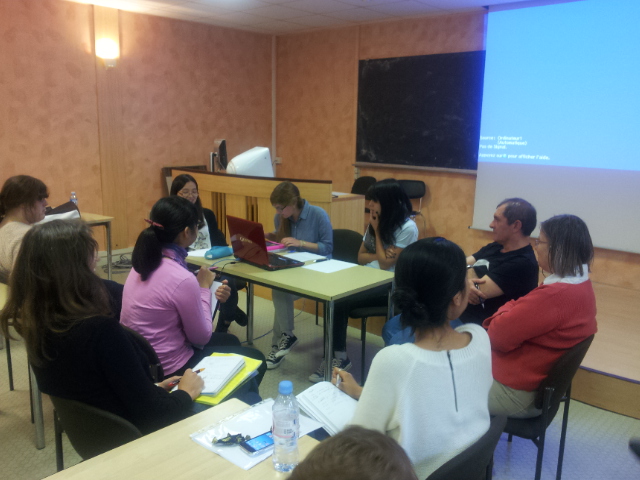Team:Paris Saclay/ellen interview
From 2013.igem.org
Ellen Jorgensen
Our interview :
Team Paris Saclay : You are the co-founder and the president of Genspace (a nonprofit organization dedicated to promoting citizen science and access to biotechnology), what are you motivations ?
Ellen : Well, I think everyone who started Genspace had a different motivation, because it is hard to find a place, a lab where we could make synthetic biology. Students in universities have ideas they wanted to try and they need to train, but they don’t have a space to practice because of the funding. So they wanted a lab space. I had worked during 25 years in biotechnology and I thought it was great that people who wanted to do it can do it without being told by their schools they have to take this class, people who were really curious about science and wanted to practice it…. And if you look to iGEM, the USA are … the other countries support their teams a lot better. The value of this king of exercise is important to me, and I wanted to provide a place where people could make biology, genetic engineering or anything like that. And also, it was important to my carreer to make something different. I don’t want to be just a PhD scientist in a lab working on series of projects, I wanted to make a more global impact..
Team Paris Saclay : When we talk about the Open Source, people think about computer science, free software, but not about biology, so for you, what is the bio-open source ?
Ellen : Well, I think biology by nature is an open source, DNA is everywhere, and the only thing that …. The all biobricks foundation and the idea of the BB library is a necessary and interesting level for mechanism open source
8:05 reprise de la discution
Team Paris Saclay : Do you think that people without a scientific education can make and understand biology and synthetic biology ?
Ellen : It happens every day at genspace.
Team Paris Saclay : What are their motivations ?
Ellen : I think that people are curious, curious about the world, this king of technology and they are interested in it. People that come said it’s good for their carreers to learn a little more about this stuff. Now people come in my class want to develop project in my lab but a good number of them do.
You know we have people without formal training at all, doing genetic engineering, PCR and making construct ….
Team Paris Saclay : What do you say to people who are afraid by GMO and think it’s too dangerous ?
Ellen : All this technology is very powerful ! Of course there is a dangerous side but one of the promises is an unbelievable benefit.
…
And in particular in this technology, as I said DNA is already open source, if someone wants to do something related to DNA, he can just extract it from thing around him. … 12.02 Making biology is just faster and easier.
Team Paris Saclay : When you work on synthetic biology in an academic space you are very controlled, do you follow some rules, laws, do you have constraints as we have in an academic research center ?
Ellen : Of course we do, and I think its because there’s so much public attention in DIY labs that … We have a scientist biology board that includes the biosafetyafficer from MIT …, a bunch of our people that have degrees and many experience … We also have safety training that are mandatory for all members before they set in the lab, 13:20 … We dispose of all chemical … It’s a small lab with not a lot of funding in an unconventional space …
Another thing is we work together in term of ethics, … surrounding the work that we're doing…
Team Paris Saclay : We gonna build a bacteria which can degrade PCBs, do you think it is a good idea to put GMO in water ?
Ellen : It depends on how you are doing it ! I mean, it’s not a good idea to just release GMO in water to clean it up… They use bacteria to clean oil. 15:44
 "
"
